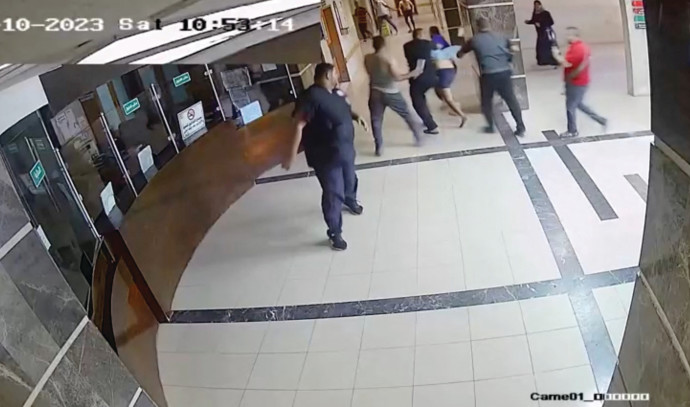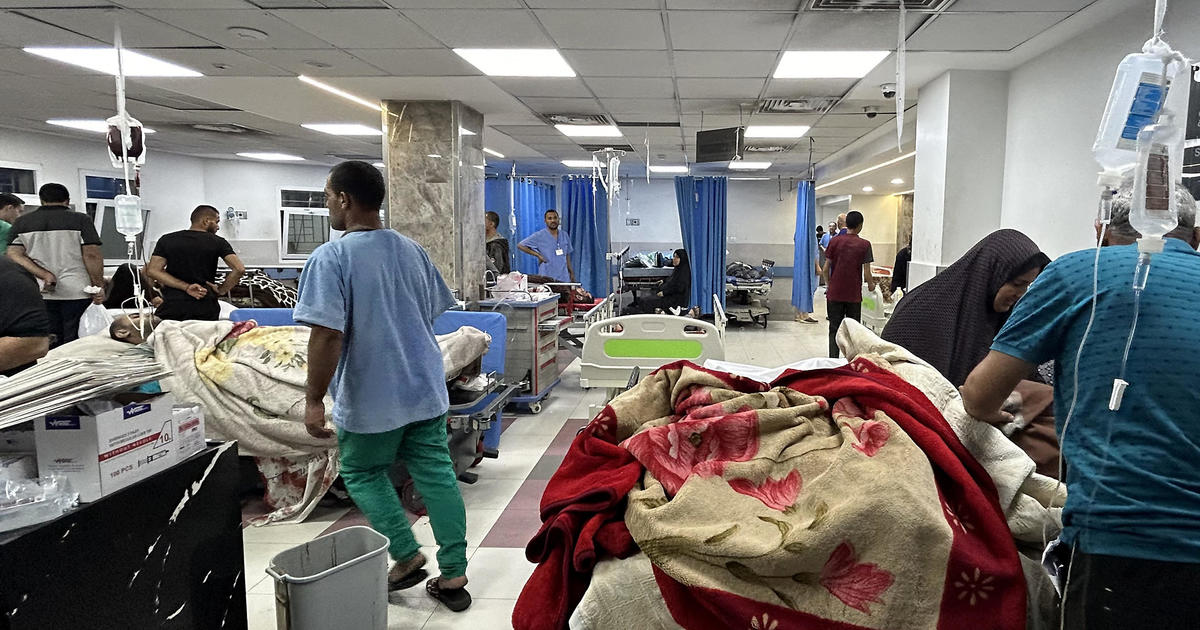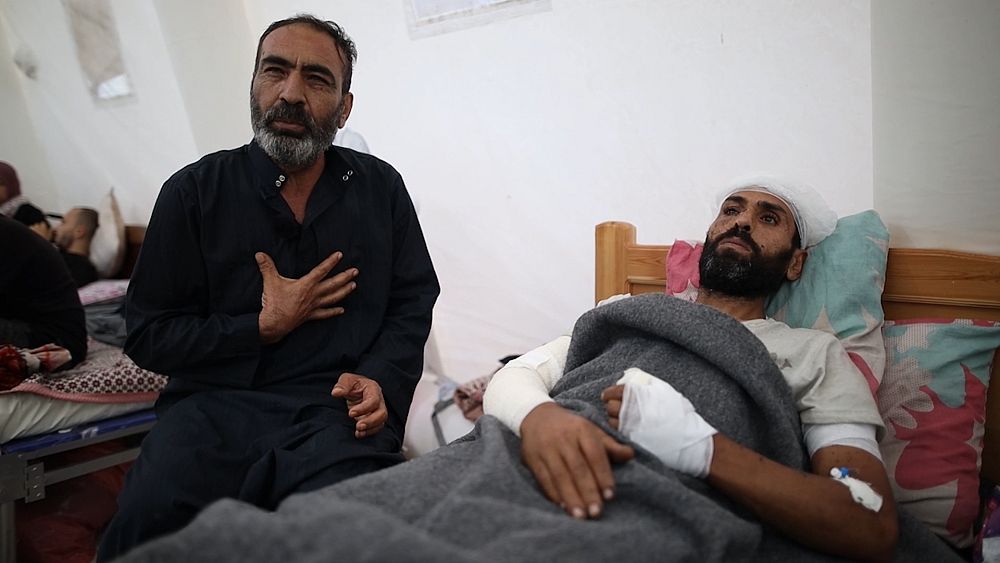Israel-Hamas war: IDF arrests director of Gaza's Shifa Hospital
The IDF and the Shin Bet (Israel Security Agency) around 2:30 p.m. Thursday afternoon finally admitted to having arrested the director of Shifa Hospital , which has been at the center of media narrative battles between Israel and Hamas in Gaza.
First, reports in the Palestinian and Hebrew media about his arrest surfaced already much earlier Thursday morning.
Questioned repeatedly earlier in the morning about why he had been arrested and why no official announcement had gone out, Israeli and IDF officials' responses alternated from surprise at the event to a promise that an announcement would go out soon.
However, even the 2:30 p.m. announcement did not make any direct charges against the Shifa chief.
Rather, the announcement said that he had been arrested and brought to the Shin Bet for interrogation after significant testimony and video evidence from others that Shifa had been used as a command center for Hamas during the director's tenure.
Israeli soldiers inspect the Al Shifa hospital complex, amid their ground operation against Palestinian Islamist group Hamas, in Gaza City, November 15, 2023 (credit: )The statement stated, "the terror group Hamas utilized many resources, including electricity in order to strengthen its tunnels which it built under the hospital. In addition, Hamas kept military items stored in the hospital and in its immediate surroundings."
In addition, the statement read that after the October 7 Hamas mass terror attack on Israel's South, the terror group "used the hospital as a refuge for its terror forces and even brought Israeli hostages to there who were kidnapped during the day of slaughter. A pathology report confirmed that soldier Noa Marciano was murdered on the grounds of Shifa Hospital."
Next, the statement said vaguely that, "a decision regarding his detention would be made in conjunction with the findings of the investigation regarding his involvement with the hospital's connection to terror."
There are a number of possible scenarios about how this could play out.
If Israel has direct Palestinian witness testimony or videographic evidence to incriminate the director, he could actually be brought to trial before special civilian courts or Israeli military courts on those charges and could be potentially sentenced to prison time in Israel.
Alternatively, Israel may not have such direct incriminating evidence, and its evidence may be more ambiguous, such as the idea that it would be impossible for any reasonable director to be completely oblivious to the sheer volume of uses by Hamas of his hospital.
In this case, it might still try to mount a case for some kind of easier to prove more minor charge, such as aiding and abetting terrorism without even being a member of a terror group.
Yet another possibility is that the Shin Bet hopes to scare him into providing them intelligence information to more quickly uncover the remaining aspects of Hamas's concealed presence at Shifa, in which case if he cooperates, he may be released with no charges.
Even if a case is brought against him, he could always defend against any conviction by claiming his life was under threat and that any passive cooperation he provided to Hamas was under coercion and duress, or was for the benefit of his patients, who Hamas might otherwise kill.
This could make him difficult to convict.
In all scenarios, detaining him will be complex globally, as generally democracies do not detain senior medical staff who are not their citizens.
Hamas immediately condemned the arrest of the director of the hospital, saying "We see this move by Israel as nothing less than despicable, lacking any sense of humanity and morals. It is also a flagrant violation of international norms and charters, given obligations to ensure that medical personnel are never harmed, including in times of war."
"We call on international bodies, including the International Committee of the Red Cross and the World Health Organization (WHO), with which Dr. Muhammad was in contact to evacuate the remaining patients and wounded from Al-Shifa Hospital, to exert pressure on the Israeli occupation army to secure his release, along with the medical personnel who were arrested simply for continuing to fulfill their humanitarian duty."
Since 2014, top Israeli defense officials have repeatedly stated that top Hamas officials spent the 2014 Gaza conflict hiding in tunnels under Shifa Hospital and the complex has since been turned into a massive underground military installation.
In recent days, the IDF has published footage showing rooms and tunnels found under the hospital, as well as weapons found in the facility.
Hostages held in Shifa hospital
Surveillance camera footage retrieved from the hospital showed at least two hostages being brought by armed individuals into the hospital on October 7, including one who was being dragged by his head through the hospital.
IDF R.-Adm. Daniel Hagari also revealed recently that intelligence has shown that Israeli hostage, Noa Marciano, was killed in Shifa.
The IDF did not comment on reports that a small number of other medical staff were arrested.
Meanwhile, the IDF worked hard on Thursday to toughen its positions across northern Gaza to prevent any surprise attacks by Hamas.
In 2014, Hamas violated a number of temporary ceasefires, in some cases successfully surprising and killing IDF soldiers.
IDF Chief-of-Staff Lt.-Gen. Herzi Halevi had held a briefing with all major generals, brigadier generals, and colonels involved in Gaza operations on Wednesday to ensure that they would be ready for anything Hamas might try.
The IDF also said that Maj. Gen. (res.) Nitzan Alon had set up a special apparatus near the Gaza border for taking in hostages presuming Hamas follows through with the terms of the war pause.
That apparatus is highly organized both in terms of special medical and psychological staff as well as helicopters and other heavy weaponry to ensure security.
Besides those developments, due to the war pause being delayed, the IDF continued attacks on Hamas on Thursday in Jabalia and Zeitoun, northeast areas which it only turned its attention to late last week after having already taken over central Gaza City.
The IDF said it had found more weapons hidden in children's beds, mosaues, and other civilian locations, as it had previously in other parts of Gaza.
If the war pause ends in the next 4-10 days, the IDF would be expected to spend some days or up to a week finishing with Hamas in Jabalia and Zeitoun as well as taking on Hamas in the tough Shejaiya neighborhood where some of the harshest battles were fought in 2014.
The IDF would also need to eventually invade Khan Younis and Rafah, among other Hamas southern strongholds, which could take more time to subdue.














